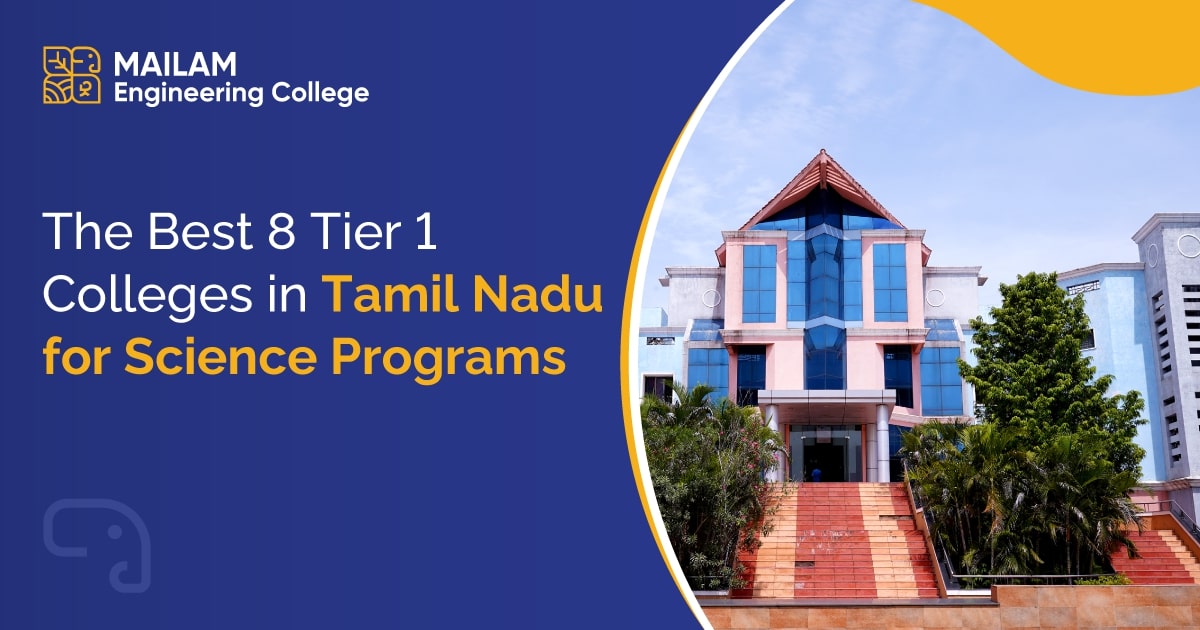Introduction
Engineering requires hard work, time, commitment, and practical experience in the field. From understanding introductory courses such as technology, production, software, and soft skills to participating in internships, workshops are full of challenges. As an engineering student, you should improve your soft and hard skills.
In this blog, you’ll see the top 10 skills that engineering students should need in college. This content will clarify and concisely explain this domain.
Top 10 Skills engineering students need in college
Here are the detailed skills and aspects needed to be successful in an engineering career.
1. Master Core Engineering Subjects
The foundation of any engineering education is a solid understanding of core subjects. Mastering fundamental concepts is crucial whether you are studying mechanical, electrical, civil, or computer engineering.
Key subjects include
Mathematics: From calculation to differential equations, advanced angular measurement skills help engineers analyse complex systems and solve challenging problems.
Physics: Most engineering professions require an understanding of physical principles, mainly mechanical and electrical engineering, where concepts like force, energy, and motion are applied.
Chemistry: Knowledge of chemistry is essential for specific branches of engineering, such as chemical, biotechnology, and materials engineering, and it is vital to understand the properties of different materials.
Computer Science: Understanding the fundamental concepts of programming languages like C, C++, Java, and software development is becoming a core aspect of engineering disciplines.
Engineering students must spend time on these core subjects as they develop the nation’s future for more advanced topics within their specialised fields. Strong academic performance in these classes will provide the theoretical knowledge for students to succeed in engineering projects and future professional industries.
2. Develop Strong Problem-Solving Skills
Engineering is a fundamental factor in solving problems. Whether designing a bridge, code bug fixes, manufacturing processes, or developing a new software application, engineers must be proficient at identifying issues and creating the right solutions. To develop strong problem-solving skills.
Develop in group projects: By collaborating with other students, we will get different opinions, which will help us finalise the solution.
Participate in competitions: Engineering competitions, such as hackathons or design challenges, push students out of their comfort zones and allow them to tackle real-world problems.
Mentorship: Learning from experienced industry professionals or professors can provide valuable knowledge and help you develop effective problem-solving strategies.
Core aspects of engineering involve transforming ideas into innovative real-time applications and products. These skills will enhance student’s ability to think critically and apply engineering principles effectively.
3. Gain Practical Experience through Internships
Internships are invaluable opportunities in the engineering domain. They provide students with hands-on experience in the field, allowing them to apply theoretical knowledge to practical outcomes.
Here are some reasons why internships are crucial for engineering students.
Real-world workspace: Internships are a connecting tool between academic learning and professional training, giving students a taste of their future careers.
Networking opportunities: Working in a professional environment allows students to build relationships with mentors, coworkers, and industry executives who can offer guidance and job opportunities.
Skill enhancement: Internships allow students to develop technical skills specific to their field, such as proficiency in design software or understanding industry ideals.
Internships can significantly boost your resume and provide a unique job-hunting phase.
4. Fundamentals of Design and Software Tools
In today’s modern tech industry, proficiency in design and engineering software is essential. Software like AutoCAD, SolidWorks, MATLAB, and other industry-standard software enables students to visualise and execute their designs with the best outcomes.
Here are a few important considerations.
Hands-on training: Many engineering programs offer lab courses where students can gain experience with relevant software tools. It is essential to take full benefit of these resources.
Online resources: Nowadays, multiple online courses and tutorials are available for students to learn software skills independently and free of cost. Platforms like Coursera, Udemy, LinkedIn Learning, and YouTube tutorials offer valuable resources.
Proficiency in design software is a significant skill engineering students must master to work efficiently in the digital engineering domain.
5. Research and Innovation Skills
As technology develops, innovation becomes a key focus in the engineering field. Students should develop and improve their research skills to sustain in this tech world.
Engage in research projects: Many colleges offer opportunities for students to participate in research competitions. This experience allows students to contribute and improve their problem-solving abilities while developing valuable skills.
Attend workshops and seminars: Participating in workshops focused on the latest technologies can inspire students and boost their creativity.
Research and innovation skills are two core values in the engineering domain.
| Did you know? According to a recent industry analysis, engineering graduates with a strong foundation in technical skills and soft skills have over a 20% higher employability rate. As technology evolves, top companies look for candidates who excel in coding and problem-solving and have effective communication and teamwork abilities. |
6. Improve Communication and Soft Skills
Effective communication is crucial in engineering, where professionals must collaborate with teams, present ideas, and explain development concepts to general users. Engineering students should focus on the following areas:.
Teamwork: Most engineering projects require teamwork. Students should participate in group assignments that enhance their ability to work effectively with various teams.
Technical writing: Technical reports and documentation are all part of an engineer’s role. Improve your professional writing to help develop software or product development documents.
By developing strong communication and soft skills, engineering students will be better suited for their careers, where clear communication is essential for effective teamwork and leadership.
7. Stay updated with Industry Trends
The engineering field constantly changes, with new technologies, advancements, and methodologies improving regularly.
Connect with industry leaders: Engaging with thought leaders through blogs, social media, and professional networking sites ensures students are informed about the latest industry developments.
Participating in student associations: Many engineering colleges have department-wise associations that host talks and events focused on industry trends and career development.
Awareness of industry trends will help engineering students remain adaptable and competitive candidates in the job platform.
8. Project Management Capabilities
Managing time, resources, and responsibilities is vital to completing successful projects. Project management skills help students prioritise tasks, manage resources, and meet deadlines.
Here are some tips for mastering these subjects.
Aspects: Understand core topics and draft the outcome as user experience mode.
Skills: PMP CSM is a significant stream of project management.
A strong foundation of management skills and design thinking is instrumental in a student’s success in engineering courses and projects.
9. Ethics and Professional Responsibility
Engineers play a critical role in society, making ethical behaviour and professional responsibility essential. Every college should conduct ethical considerations and teach students about professional standards, safety protocols, environmental impacts, and commitment towards society.
Here are some strategies to embrace teamwork.
Volunteer for leadership roles: Taking on leadership tasks within group settings helps students develop organisational and interpersonal skills.
Learn to give and receive constructive feedback: Understanding how to provide and accept feedback is crucial for effective collaboration.
These ethical values reflect the reality of engineering practice in modern workplaces.
10. Prepare for Global Perspectives in Engineering
Engineers often work with clients or leaders across different environments, which shows that the world is becoming more interconnected and easy to approach. Preparing for a global perspective is essential for engineering students.
Learn about cultural differences: Engaging with international students and learning about their perspectives can enhance global development.
Participate in exchange programs: If available, join study-abroad programs to experience different educational environments and practices.
.
Preparing for a global perspective helps engineering students develop adaptability and cultural competence.
Preparing Students for Real-World Engineering: Mailam’s Approach
Your resume is your first opportunity to attract interest, so showcasing your relevant engineering skills is essential for impressing the hiring professional who reads it. At Mailam, we deeply understand our student’s future career perspectives.
Here are a few of the best skills that we constantly develop so that our students can succeed in the respective engineering courses they join.
Accounting skills: Many engineers need accounting skills to track expenses and properly bill clients. Using accounting skills may involve operating accounting software and using math abilities.
Quality assurance: (QA) ensures that your plans and designs are high-quality and that other engineers can use them in development. At Mailam, we teach our students about the importance of QA. Many QA departments only hire engineers who can help evaluate the quality of products, plans, and reports.
Research: Research skills are often necessary in engineering positions to help determine advancements within the field, develop products, and gather information. We continuously develop our students’ research skills, which are core engineering aspects. Engineers commonly conduct research by reading academic journals, studying competitors’ products, and examining various other forms of literature.
Creativity: It’s vital to solving an engineering problem; you may have yet to gain domain experience with a similar problem or need. In these situations, creative ideas or thinking can combine primary experiences in new ways to create a solution to the problem. Creativity is an essential skill that employers may look for in your resume.
Conclusion
Engineering education is a future development journey that goes beyond technical knowledge. Developing critical skills is vital for students to succeed in their studies and prepare for the best careers in engineering. From mastering core subjects to excellent communication abilities and earning practical experience, the skills detailed in this blog are essential for every engineering student.
FAQ – Skills Engineering students
1. What skills are most important for engineering students?
Skills like problem-solving, technical proficiency, communication, and quick learning are critical for engineering students.
2. Does Mailam Engineering College provide software training?
Yes, Mailam offers training in industry-standard software such as AutoCAD, MATLAB, and SolidWorks.
3. How can engineering students improve their communication skills?
Group projects, presentations, and technical writing exercises help students enhance their communication skills.
4. Why are ethics important in engineering?
Ethics ensure that engineers work responsibly, considering safety, environmental impact, and societal welfare.
5. Does Mailam Engineering College support industry collaborations?
Yes, Mailam has good connections with top industries that provide students with real-world exposure and practical experience.










